A VET who gave up his surgery-based career to work with orangutans in South East Asia and co-found a charity with his wife has reflected on how he now has more job satisfaction than ever before, writes Amy Dennis.
Nigel Hicks used to have a surgery at Lifton, then worked at Castle Vets before establishing the charity Orangutan Veterinary Aid (OVAID) with his wife Sara Fell Hicks, a former veterinary nurse, in 2014.
The couple have been working with orangutan in Borneo since 2009. Through their experiences they recognised a need for the provision of veterinary equipment, medicines and practical veterinary mentoring to orangutan rescue groups and rehabilitation centres in Indonesia and Malaysia. Through friends they have raised funds to enable them to buy equipment, which they personally took out to Indonesia.
The charity supports vets working at the front line of orangutan rescue, whether this is from illegal pet homes, human orangutan conflict or the illegal wildlife trade. These vets and their teams are often working in difficult, demanding and dangerous conditions with minimal equipment.
Recognising the importance of practical help Nigel and Sara both spend as much time as possible each year volunteering at Indonesian rescue centres. Nigel has just returned from North East Kalimantan’s The Centre for Orangutan Protection (COP). He first volunteered to work with orangutan in 2009 in Malaysia, but he said while forests have already been destroyed there, in Indonesia deforestation is still happening.
He said: “I’ve always had this fascination with them and wanted to see them. When you look into their eyes you can see the cogs turning. They have a sense of humour, they’re intelligent, 97% of their DNA is the same as us.
“I think the fact they are human-like, that’s the fascination. They are generally friendly, slower than the other apes, certainly not as aggressive as chimpanzees.”
But Nigel has unfortunately learned the hard way that it can be dangerous working with them. He is missing his little finger on his right hand, bitten off around two years ago by an orangutan. Nigel added: “It was a big male orangutan. We had been treating him on a daily basis, giving medication daily and he was fine. This particular day he decided he wasn’t going to be fine and took the finger off in one bite. They are a wild animal.
“I don’t think there’s ever been a case of an orangutan killing anybody.”
Luckily the injury hasn’t affected his work, nor detracted from his fascination of the apes — and it seems his work sticks in the orangutans’ memory, too.
He once treated a female orangutan with a broken leg, having to take her six hours to the nearest clinic where pins were put in her leg.
He went back to the area a different year, and in a clearing in a forest away from the public, heard two orangutans. One dropped into the clearing, and immediately approached Nigel, sat down beside him, lifted up her leg, and there was the scar.
He added: “I’m absolutely convinced she recognised me. I think it demonstrates their intelligence.”
Although he said their Facebook page receives lots of likes when they post photos of baby orangutans, he said: “All these babies you see pictures of, probably were in their mothers’ arms when they were shot and killed. We see all sorts of injuries. In Sumatra last year we saw a male orangutan with 66 air gun pellets in him, and a finger missing.”
Nigel estimates in the last three or four years they have donated the equivalent of £40,000 of equipment, which they carry with them themselves when travelling, adding: “We try and take it with us when we can. We’ve taken two anaesthetic machines out.”
Illustrating need for more education and equipment in Indonesia, he said of the COP: “It’s in the jungle, they only have electricity three hours each night. The new vet had never seen an anaesthetic machine.”
Neither Nigel or Sara take a salary, and Nigel emphasised everything goes back into the charity. As well as donations from friends, they try and get donations from veterinary supply companies and have been supported by cosmetic company Lush, which provided a grant for £10,000, enabling them to go to Sumatra last year to help a rescue centre there. They have also been left a legacy by an Australian woman, and they would like to try and bring Indonesian vets to this country to give them better training.
Although they try to impart veterinary skills when they travel, Nigel said often when they leave it reverts back to how it was, adding: “It’s sort of depressing. You come back depressed because you aren’t changing things, but even so I’ve had more job satisfaction in the last six or seven years than I’ve ever had.
“Long term, if we are going to save the orangutan a lot of things need to change. Vets need to be better qualified. The government’s attitude to deforestation needs to change.
“The forest is cut down for palm oil. When we are back in the UK we try and do talks to educate and spread the word, make people aware we are using more and more and we don’t necessarily have to. What we probably should be doing is using sustainable palm oil.”
Nigel and Sara now look forward to setting off to Northern Sumatra in October for an eight-day adventure, open to members of the public, with only a couple of very limited places remaining. The trip, arranged in conjunction with Orangutan Odysseys, will trek into the jungle of the Leuser ecosystem, see wild orangutan, elephant, macaques, gibbon, hornbills and other wildlife, spend a night under the stars, raft down rivers and visit a successful reforestation programme. There will also be a visit to the SOCP orangutan centre to see first hand how rescued orangutan start on their journey of rehabilitation.
For more information on the charity and the upcoming trip, visit www.ovaid.org or search for Orangutan Veterinary Aid — OVAID on Facebook.
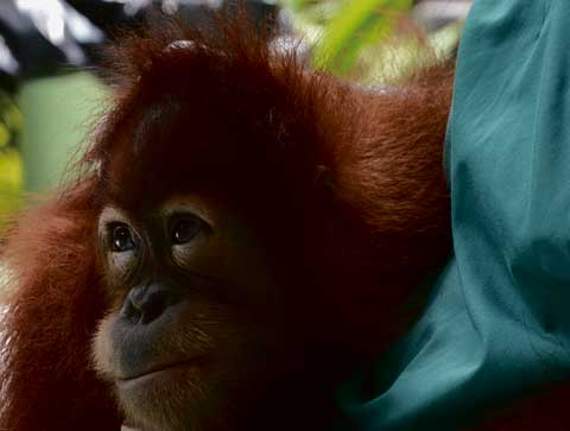
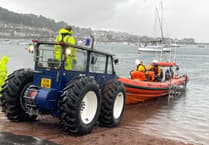
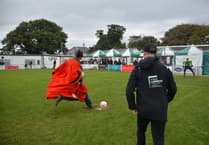
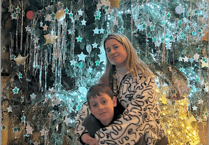
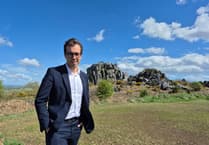
Comments
This article has no comments yet. Be the first to leave a comment.